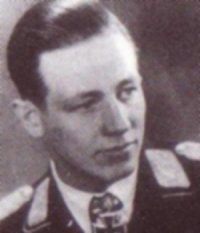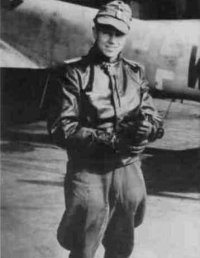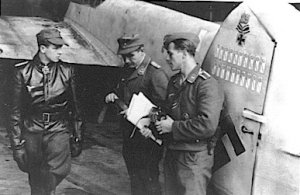 |
Martin Drewes was one of
the truly great Luftwaffe Night Fighter Ace's. Between 1941-45 he flew
no less than 235 combat missions with the ME 110. Martin Drewes started
his military career on the 2nd of November 1937 when he enters
service with Panzer Regiment 6 (3 Panzerdivision) in Neuruppin. In
October 1938 he is sent to the Army school in Munich and on a solemn
occasion on August 1st 1939 in Tannenberg-Denkmal, he is promoted to
Lieutenant. (Leutnant) At the end of his training he decides to transfer
to the Luftwaffe. He trains as a pilot and in February 1941, he joins II
ZG 76, the so-called Haifischgruppe (Group of Sharks) that flies patrols
over the North Sea. In mid-April he takes part in an operational mission
in Iraq and Syria, called Sonderkommando Junck (Special command Junck)
which is tasked to support the revolt against the British. On the 20th
of June 1941, he makes his first kill over Iraq, a Gloster
Gladiator. From mid-June to the end of October he is flying over the
North Sea once again, where on the 29th of August 1941, he shoots
down a Spitfire. He flies a total of 88 sorties and scores only two
victories with his slower Me 110. |

